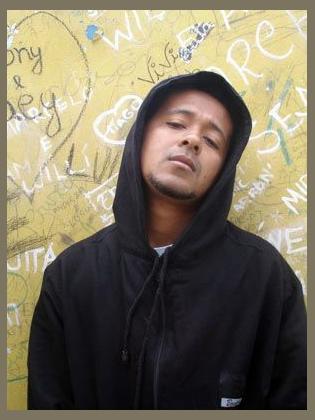 Calhambeq Mesclado
Calhambeq Mesclado
Calhambeq Mesclado: A Journey of Reggae, Controversy, and Social Advocacy
Origins and Rise to Prominence
Calhambeq Mesclado emerged from the vibrant reggae scene of Salvador, Brazil, in the late 1990s. The band's eclectic fusion of reggae, samba, and Afro-Brazilian rhythms quickly garnered a loyal following. Their breakout song, "Legalize," released in 1999, became an anthem for the legalization of marijuana and a symbol of the band's commitment to social justice.
Discography and Musical Style
Calhambeq Mesclado has released a string of critically acclaimed albums, including "Legalize" (1999), "A Ponte" (2002), and "Nação Zumbi" (2005). Their music is characterized by its infectious rhythms, thought-provoking lyrics, and an unwavering spirit of activism.
Members
The band's core lineup consists of:
* Rodrigo Damati (vocals, guitar)
* Bruno Lins (bass)
* Magary Lord (drums)
* Rudson Daniel (keyboards)
Challenges and Controversies
Calhambeq Mesclado's outspoken stance on social issues has often drawn controversy. Their pro-legalization stance has led to both support and criticism, while their songs addressing poverty, racism, and police brutality have challenged the status quo.
Discography
* "Legalize" (1999)
* "A Ponte" (2002)
* "Nação Zumbi" (2005)
* "Caminhos" (2008)
* "Resistência" (2011)
* "Raízes" (2014)
* "Revolução" (2017)
Activism and Social Impact
Beyond their music, Calhambeq Mesclado has been actively involved in grassroots movements and campaigns. They have performed at rallies and protests, advocating for social justice and environmental protection. Through their music and actions, the band has inspired a generation of activists and musicians.
Legacy
Calhambeq Mesclado has left an indelible mark on the Brazilian music scene and beyond. Their unwavering commitment to social change, their infectious rhythms, and their thought-provoking lyrics continue to resonate with audiences worldwide. Their music serves as a testament to the power of art to challenge societal norms and inspire positive action.
Origins and Rise to Prominence
Calhambeq Mesclado emerged from the vibrant reggae scene of Salvador, Brazil, in the late 1990s. The band's eclectic fusion of reggae, samba, and Afro-Brazilian rhythms quickly garnered a loyal following. Their breakout song, "Legalize," released in 1999, became an anthem for the legalization of marijuana and a symbol of the band's commitment to social justice.
Discography and Musical Style
Calhambeq Mesclado has released a string of critically acclaimed albums, including "Legalize" (1999), "A Ponte" (2002), and "Nação Zumbi" (2005). Their music is characterized by its infectious rhythms, thought-provoking lyrics, and an unwavering spirit of activism.
Members
The band's core lineup consists of:
* Rodrigo Damati (vocals, guitar)
* Bruno Lins (bass)
* Magary Lord (drums)
* Rudson Daniel (keyboards)
Challenges and Controversies
Calhambeq Mesclado's outspoken stance on social issues has often drawn controversy. Their pro-legalization stance has led to both support and criticism, while their songs addressing poverty, racism, and police brutality have challenged the status quo.
Discography
* "Legalize" (1999)
* "A Ponte" (2002)
* "Nação Zumbi" (2005)
* "Caminhos" (2008)
* "Resistência" (2011)
* "Raízes" (2014)
* "Revolução" (2017)
Activism and Social Impact
Beyond their music, Calhambeq Mesclado has been actively involved in grassroots movements and campaigns. They have performed at rallies and protests, advocating for social justice and environmental protection. Through their music and actions, the band has inspired a generation of activists and musicians.
Legacy
Calhambeq Mesclado has left an indelible mark on the Brazilian music scene and beyond. Their unwavering commitment to social change, their infectious rhythms, and their thought-provoking lyrics continue to resonate with audiences worldwide. Their music serves as a testament to the power of art to challenge societal norms and inspire positive action.